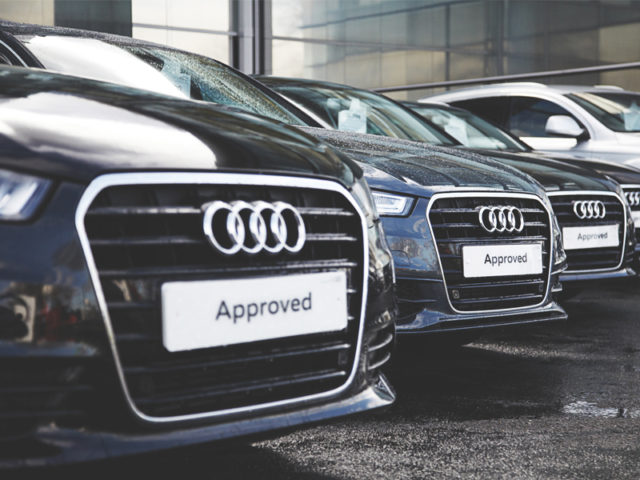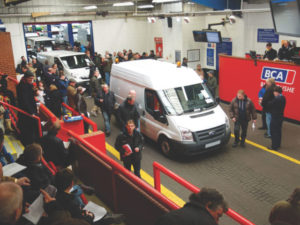Second Hand, Second Rate?
With tightening BIK tax bands and the growth in used car PCP deals, should companies be worried about cash-for-car drivers taking the used route for their next company car? Julian Kirk reports.
 For many employees, a company car is not only a vital part of a remuneration package, it also helps define where they stand in the company hierarchy. Parking your E-Class next to a colleague’s Focus suggests one is much further up the career ladder than the other.
For many employees, a company car is not only a vital part of a remuneration package, it also helps define where they stand in the company hierarchy. Parking your E-Class next to a colleague’s Focus suggests one is much further up the career ladder than the other.
However, the growth in used car PCP options is opening up new avenues for image conscious employees who decide to opt out of a company car scheme and take the cash instead. Armed with a monthly allowance in their pay packet, they are financing much higher-spec cars than their traditional car banding would allow, helped by a push from manufacturers to shift used models from their forecourts.
And with ever-tightening benefit-in-kind tax bandings spelling increased personal taxation costs, more people are looking at ways to minimise their donations to the Treasury.
Gerry Keaney, chief executive of the BVRLA, warns that the Government’s ‘over zealous taxation of motorists, particularly company car drivers’ could bring an end to the long-standing trend of falling average car CO2 emission.
He said: “Policymakers need to remember that motoring and business car taxation is more than just a revenue stream. It provides a powerful incentive for people and businesses to choose low-emission cars.
“The Government has said it will introduce a new, more granulated range of company car tax bandings from April 2020 that will provide some attractive incentives for people choosing the cleanest pure electric and hybrid cars. Company car drivers make pragmatic, cost-conscious decisions and we believe that many of them will defer their move to low-emission motoring until the incentives come into effect.
“Company car tax rates are due to rise significantly between now and 2019 and many drivers will end up choosing cheaper, higher-emission company cars. Others could abandon the traditional company car altogether and use their cash allowances to fund a PCP or PCH contract on a new or used car. Others might just pocket the money and rely on an existing household car for their work journeys.
“Whatever happens, we could end up seeing more older, high-emission and inappropriate vehicles being driven for business.”
But should companies be concerned about the move, and what Keaney calls ‘inappropriate’ vehicles being driven for business? While buying approved used models means vehicles which have passed multiple checks to make sure they are roadworthy, some may stray from the approved forecourts and into the independent arena, where some vehicles may not be prepared to the standard of the franchised dealers.

Richard Hipkiss, managing director, Fleet Operations.
Ian Hill, managing director at Activa Contracts, said: “If businesses were to introduce used car PCPs, the risk management and work-related road safety ramifications would be significant. Businesses are legally responsible for all vehicles driven on work-related journeys irrespective of ownership; therefore, any move to a used PCP proposition results in significant risk exposure. It is a risk that most companies would not be prepared to take.
“Virtually all businesses will have in place constraints, aligned to the company car policy, that govern the make, model, age and mileage of a vehicle that an employee can select with their cash allowance. Even if business mileage is extremely limited, parallel standards with the company car policy will be in place.”
ACFO chairman John Pryor agrees, citing a trend of an increased uptake in cash-for-car as a result of tightening tax bands. He said: “I have heard of fleets that are seeing drivers taking the cash and thinking the private PCP is a better deal. But there has to be caution in what the deposit is, what is the insurance, what is the mileage. In the finance industry there are rumours that these PCPs will be the next PPI mis-selling scandal.
“While anecdotal evidence suggests some companies have said they will move away from company cars, businesses have come to recognise that they need employees to be mobile and the fact that you cannot outsource your responsibility if employees are travelling on business. But some are looking at wider mobility where the private car is used and have polices in place.
“As a result, companies need to have a clear policy for drivers who have opted out. It is about having a clearly defined mobility programme – not just company cars but a wider ground transportation proposition in getting an employee from A to C via B. You need to look at the whole picture to try and get joined up mobility – cost, practicality and the environment are all involved in the process.”
It is these constraints that are essential for any business which offers a cash for car scheme. According to Richard Hipkiss, managing director of Fleet Operations, it is easy for companies to police opt-out drivers. He said: “We have seen an increase in people opting out, with company car tax bands becoming more stringent. There is a shift in people wanting a more ‘lifestyle’ car, plus there’s a bit of ‘keeping up with the Joneses next door. By opting out, employees can get a significantly better car on a PCP deal.”
“From a company perspective, it is easy to police opt-out drivers as you can introduce the same sort of restrictions as you do for company cars, such as restrictions on emissions, engine size, number of doors, etc.
“You can restrict it, but most firms don’t – I heard of someone in a BMW 318d company car who opted out and bought a two-year old 7 Series for a lower monthly cost – that was a £60,000 car when new. You rely on people being sensible and not getting something inappropriate.”
Hipkiss says that opting out is generally only the preserve of low mileage user-choosers and not the essential need employees. He added: “Opt out drivers will generally be the perk/status drivers – in general it is financially prohibitive for essential need drivers doing up to 40,000 miles a year to opt out and run their own car.
“But perk/status drivers want more desirable vehicles – and in the last six to seven years we have seen some businesses’ choice lists move from two to three/four or five-year replacement cycles – five years tied into a car scheme is a long time for some people – this is where an opt-out scheme gives flexibility.”

SMEs are increasingly purchasing high-quality used vans, rather than financing new ones.
SMEs switching to used vehicles
Expanding smaller companies are investing in used vans rather than buying new.
According to market analysis from Shoreham Vehicle Auctions (SVA), SMEs are spending £10,000-£15,000 on a good quality used van rather than buying or financing £25,000-£30,000 to buy a new one.
The result is a 5% drop in new LCV sales (up to 3.5 tonnes) which spells good news for the used market as the demand for one to three-year-old used LCVs is set to grow over the coming two years until the true results of Brexit are realised.
SVA managing director Alex Wright said: “The light commercial market is well tuned to the current economy such as low interest rates, low unemployment figures, higher inflation and a falling Sterling. These current economic factors plus Brexit are all enough for an SME to switch from a new to a used purchase for the time simply to manage their risk.
“Cashflow is king and they are able to change their purchasing decisions swiftly to protect their cash in the bank but not preventing them growing their businesses.”

Companies are looking at the circumstances of staff members before making a decision.
OpRA implications
The introduction of the Optional Remuneration Arrangements (OpRA) rules in April is changing the way some companies deal with company car provision.
Activa Contracts is reporting that some of its clients are removing the cash allowance option in certain employee scenarios.
Managing director Ian Hill said: “They are effectively looking at the circumstances of every individual member of staff and explaining the new rules to them and then together making a decision. We continue to highlight the tax-efficient benefits of company cars and specifically ultra-low emission vehicles.”
Fleet Operations’ Richard Hipkiss added: “The challenge is with the tax changes, specifically the impact on cash equivalent/salary sacrifice schemes.
“Some of these changes went under the radar, specifically for the 400,000 people who take cash in lieu of a company car. If you look at an example of an employee in a BMW 316d company car emitting 99g/km and an opt-out driver in a higher spec and more powerful model emitting 130g/km, there will be little in it once all the relevant tax has been deducted. So a driver can be paying the same amount of tax but opt for a more expensive car. The differences are marginal.”

Bruce Greenwood, used car manager, Volvo Car UK.
The manufacturer view
Bruce Greenwood – used car manager, Volvo Car UK
Volvo Car UK’s approved used programme Selekt has grown 14% year-on-year and its dealers use used PCP as a way of retailing ex-demonstrators and PCP returns.
Bruce Greenwood, Volvo Car UK’s used car manager, said: “Many of our vehicles will certainly fall into the category of a typical £200-£500 monthly allowance that a user-chooser would receive. PCP payments also offer more flexibility as the user is even able to alter the annual mileage or deposit level on the car they are reviewing to better fit their particular requirements.
“If a fleet operator is going to provide its drivers with a cash allowance and then let them convert it into a used PCP, they’d need to provide quite rigid rules of a car’s age, mileage and vehicle type, however, dependent on the needs of the driver.
“Purchasing a used vehicle for use as a company car through a manufacturer’s used car scheme will offer reassurance to business owners and drivers that the vehicle has been through a stringent inspection and check-list process. Opting for a used vehicle on a PCP payment remains a safe and cost-effective option as they are some of the best prepared and most thoroughly checked cars on the market – in the case of Volvo Selekt, every car goes through more than 100 checks and receives any necessary software upgrades direct from the manufacturer.
“Generally, OEM schemes only offer cars with a full service history and all the relevant supporting documents to further offer peace of mind for the fleet operator that their driver is at the wheel of a roadworthy car to be used on company business.”

















